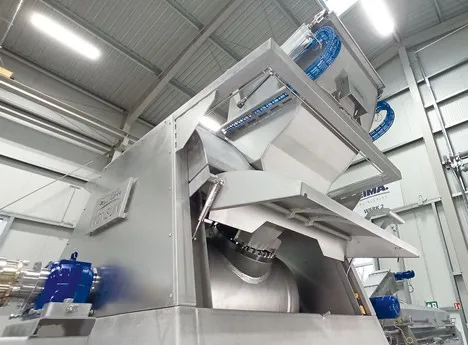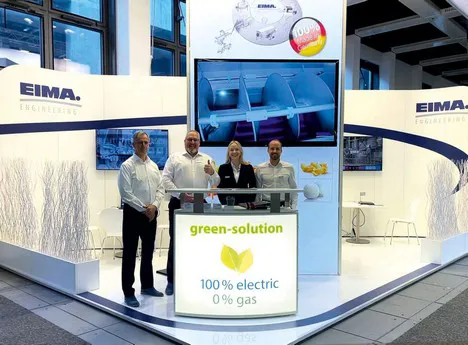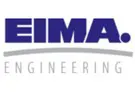In times of rising energy prices, energy-efficient machines are particularly in demand in the food industry. EIMA Engineering Ltd, a mechanical engineering company based in Lower Saxony, Germany, has recognized this trend and has set itself the task of accommodating processors with high-performance and, above all, energy-saving processes. The latest generation of the proven steam peeling line (DS05-16 Monsoon) for potatoes and vegetables was recently presented at Fruit Logistica.
"Compared to the previous model, the optimized steam peeler has a lower energy yield because more volume can be processed in the same operation. In a nutshell: We can process more volume with the same amount of steam, which means fewer resources used. Furthermore, the steam temperature is lower while the output remains the same," says Brandt, describing the advantages of the optimized process. The technology is mainly used for processing potatoes, field vegetables (beet, carrots, etc.) and fruit vegetables.

The new generation of the proven DS05-16 Monsun steam peeler Image: EIMA Engineering
Energy efficiency at the top of the list
"For us, it is not the cycle rate per se, but energy efficiency that plays the biggest role, which in turn is connected to the current energy situation. In terms of energy generation, we want to operate as cost-effectively as possible, which in everyday practice means that we want to use as little energy as possible in the first place," Brandt continues.
This resource-efficient design of plant technology also runs through the rest of the product range. Brandt: "For example, we have a machine in which both the spray wash and brush units are integrated. This means that water used in one area can be reused in another. Accordingly, energy consumption is also significantly reduced in these processes."
Hygiene and process reliability
According to Brandt, it is necessary to act early to stay ahead of future legislation in terms of resource and energy use. "Personally, I assume that in five or at the very latest ten years, steam will no longer be allowed to be generated. That means you have to think in terms of the future in terms of energy." In addition to energy efficiency, hygiene is an unavoidable key factor in today's process processing, he said. "A few years ago, the discussion started slowly, and now it is practiced. We are also actively working on increasing process safety."
Medium-sized processors to large-scale industry
Eima Engineering is dedicated to the development as well as the distribution of high-quality plant technology, mainly for the meat as well as the vegetable industry. "In the vegetable sector, we serve large-scale industrial installations, but also farmers who want to refine their own yields. As is well known, the latter market segment suffered badly during the pandemic. Luckily, it is now recovering, with sales to canteens and commercial kitchens being the exception. What we have to contend with is the daily struggle for material. However, we have set ourselves the task of solving these problems in the long term and offering alternatives should difficulties arise in any form."

Kai Brandt (2nd from left) and team at this year's Fruit Logistica.
For more information:
Kai Brandt
EIMA Engineering GmbH
Käthe-Kruse-Strasse 14
26160 Bad Zwischenahn
Tel: +49 4403 62245- 0
[email protected]
www.eima.de
